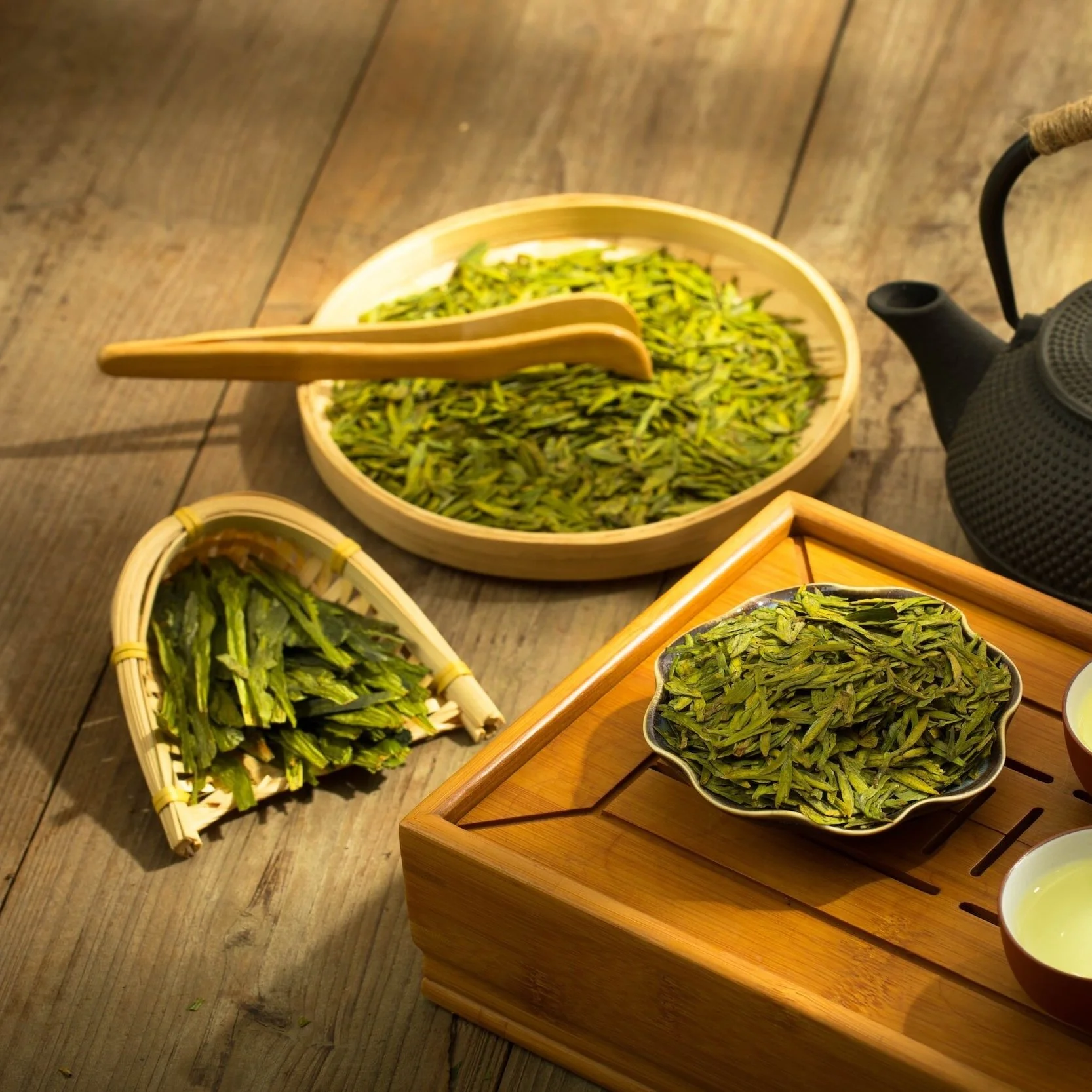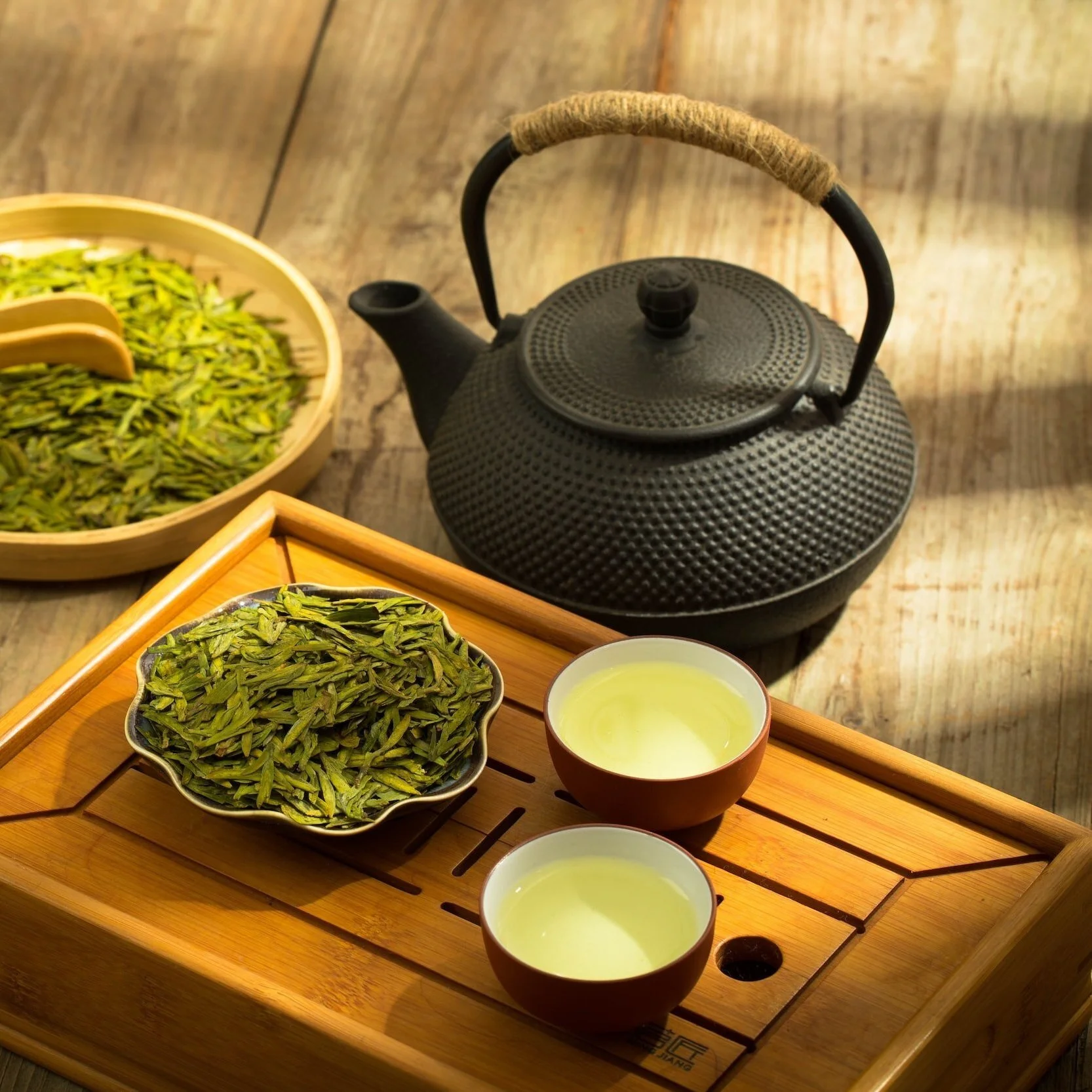Dragonwell Tea: Exploring the Delicate Elegance of Longjing Tea
Welcome to the world of Dragonwell tea, a captivating and revered Chinese green tea that has captured the hearts of tea enthusiasts worldwide. With a history dating back centuries, Dragonwell tea, also known as Longjing tea, is celebrated for its delicate flavor, unique appearance, and rich cultural significance. In this article, we will delve into the origins, production methods, health benefits, and cultural significance of Dragonwell tea, exploring what makes it a true treasure among tea connoisseurs. Join us as we embark on a journey to unravel the secrets and beauty behind this renowned Chinese tea.
Dragonwell Tea - A Journey into the Delicate Flavors of Chinese Tradition
Explore the enchanting world of longjing tea, a time-honored Chinese treasure renowned for its delicate flavors and rich cultural heritage.
What Exactly is Dragonwell Tea?
Dragonwell tea, also known as Longjing tea, is a type of Chinese green tea that originated in the West Lake region of Hangzhou, Zhejiang province. It is renowned for its distinctive appearance, delicate flavor, and exceptional quality. Dragonwell tea is made from the leaves of the Camellia sinensis plant, specifically the cultivar known as Longjing, which thrives in the fertile soils and humid climate of the region. The leaves are carefully harvested and then skillfully pan-fired in large woks to halt the oxidation process. This meticulous handcrafting technique gives Dragonwell tea its characteristic flattened shape, vibrant green color, and a unique chestnut aroma. The resulting brew offers a refreshing taste with subtle notes of chestnut, grassy sweetness, and a lingering vegetal finish. Dragonwell tea is cherished for its exceptional quality, which has made it a treasured tea variety both in China and around the world.
History and Origins
In the rich tapestry of Chinese tea history, Dragonwell tea holds a prominent place. Its origins can be traced back to the Tang dynasty (618-907 AD) in the West Lake region of Hangzhou, Zhejiang province. There are many myths and legends surrounding this tea. The most popular legend of them all, tells us that a Taoist monk discovered a magical well with a dragon residing within (or perhaps dragon shaped rock). This auspicious encounter led to the name "Dragonwell" or Longjing tea named after the famous well. The tea gained popularity during the Ming dynasty (1368-1644 AD) and became a favorite of the imperial court. Emperors praised its exceptional quality, and it soon became a highly sought-after tribute tea. Throughout the centuries, Dragonwell tea continued to be cherished and enjoyed by scholars, poets, and intellectuals who gathered in teahouses to savor its refined taste and engage in philosophical discussions. Today, Dragonwell tea remains an emblem of Chinese tea culture, celebrated for its history, craftsmanship, and revered status as one of China's most esteemed teas.
YOU MAY ALSO LIKE: What are Tea Pets
Growing, Harvesting and Processing
Dragonwell tea undergoes a meticulous cultivation and production process to ensure its exceptional quality. Grown in the West Lake region of Hangzhou, the tea plants are carefully tended in well-maintained gardens. During the early spring harvest, only the top bud and two leaves are plucked, as they possess the most desirable qualities.
Dragonwell tea is characterized by its distinctive flat and slender shape. This shape is achieved through a traditional processing method known as pan-firing, where the tea leaves are skillfully pan-fired in large woks over high heat, using gentle pressure and hand movements to shape the leaves into their unique flattened appearance.
Sorting and grading follow to select the finest leaves, which are then packaged in airtight containers to maintain their freshness and aroma. This attention to detail at every stage results in the exquisite Dragonwell tea we enjoy today.
Caffeine Levels
Dragonwell tea, like other green teas, contains caffeine, although the exact amount can vary depending on factors such as the specific batch, growing conditions, and brewing methods. On average, Dragonwell tea typically contains around 20-40 milligrams of caffeine per 8-ounce (240 ml) serving.
Health Benefits and Side Effects
Dragonwell tea, like other green teas, is known for its potential health benefits. Here are some of the key advantages associated with Dragonwell tea consumption:
Antioxidant-rich: Dragonwell tea contains antioxidants, such as catechins, which help combat free radicals and protect the body against oxidative stress, potentially reducing the risk of chronic diseases.
Boosts metabolism: The combination of caffeine and catechins in Dragonwell tea may support weight management by increasing metabolism and promoting fat oxidation.
Enhances brain function: The caffeine content in green tea, including Dragonwell tea can provide a mild stimulant effect, helping to improve alertness, concentration, and cognitive performance.
Promotes heart health: Regular consumption of green tea, including Dragonwell tea has been linked to a reduced risk of cardiovascular diseases. It may help lower LDL cholesterol levels, regulate blood pressure, and improve overall heart health.
Potential cancer-fighting properties: Some studies suggest that the antioxidants found in Dragonwell tea may help inhibit the growth of certain cancer cells and reduce the risk of certain types of cancer.
While Dragonwell tea is generally safe for most people when consumed in moderation, it does contain caffeine, which may cause side effects in sensitive individuals. These side effects can include increased heart rate, anxiety, sleep disturbances, or stomach upset. It's advisable to consult with a healthcare professional if you have any specific concerns or underlying health conditions.
Brewing and Tasting Dragonwell Tea
Discover the art of crafting Dragonwell tea, as we delve into the step-by-step process of brewing, tasting and pairing with other flavors.
What Does Dragonwell Tea Taste Like?
Dragonwell tea is renowned for its delicate and refreshing flavor profile. It is often described as having a smooth and mellow taste with a subtle sweetness and a hint of chestnut. The flavor is often accompanied by a pleasant vegetal undertone, reminiscent of fresh grass or steamed greens. Dragonwell tea is known for its clean and crisp mouthfeel, with a lingering, slightly nutty finish. The taste is well-balanced and not overly astringent or bitter. The overall experience of sipping Dragonwell tea is often described as soothing, comforting, and satisfying. It is a tea that can be enjoyed both hot and cold, offering a delightful sensory experience to tea enthusiasts.
How to Brew a Cup of Dragonwell Tea
To brew a perfect cup of Dragonwell tea, start by heating fresh, filtered water to around 175°F (80°C) to preserve the delicate flavors. Pre-warm your teapot or cup with hot water, then discard it. Use approximately 1-2 teaspoons of Dragonwell tea leaves per 8 ounces (240 ml) of water and steep for 1-3 minutes. Be careful not to oversteep your tea, this will help avoid bitterness. Strain the leaves and serve your tea. Dragonwell tea leaves can often be steeped multiple times, gradually increasing the steeping time. Add honey or lemon if desired. Adjust the brewing parameters to suit your taste preferences and enjoy the exquisite flavors of Dragonwell tea.
Tea and Food Pairings
When it comes to pairing Dragonwell tea with foods, there are several options that complement its delicate flavors, making it an excellent choice for afternoon tea. Here are some food pairing ideas that harmonize well with Dragonwell tea:
Light pastries: Pair Dragonwell tea with light and delicate pastries such as almond cookies, shortbread, or petit fours and tea cakes. The subtle sweetness and nutty undertones of the tea complement these treats without overpowering their flavors.
Fresh fruits: Enjoy Dragonwell tea alongside a platter of fresh fruits like sliced apples, pears, or berries. The tea's clean and refreshing taste provides a pleasant contrast to the natural sweetness and juiciness of the fruits.
Sushi or sashimi: The grassy and slightly vegetal notes of Dragonwell tea harmonize well with the flavors of sushi or sashimi. The tea's clean palate-cleansing qualities complement the subtle flavors of raw fish and seaweed.
Steamed dumplings: Dragonwell tea pairs nicely with steamed dumplings, whether filled with vegetables, seafood
Light salads: Serve Dragonwell tea with a light and refreshing salad, such as mixed greens or cucumber salad. The tea's clean taste helps cleanse the palate between bites while enhancing the overall freshness of the salad.
Poached or grilled white fish: The subtle flavors of poached or grilled white fish, such as sole or cod, are well-balanced with the delicate taste of Dragonwell tea. The tea's mild grassy notes and gentle sweetness provide a pleasant accompaniment to the fish.
You May Also Like These Teas
If you enjoy the characteristics of Dragonwell tea and would like to explore other teas with similar profiles, here are a few options to consider:
Bi Luo Chun: Also known as Green Snail Spring, Bi Luo Chun is a Chinese green tea with a delicate and mellow flavor. It has a subtle sweetness, a slightly nutty aroma, and a smooth mouthfeel, similar to Dragonwell tea.
Huangshan Maofeng: This Chinese green tea hailing from Huangshan (Yellow Mountain) has a slightly floral aroma, a sweet and vegetal taste, and a refreshing finish. It shares some similarities with Dragonwell tea, particularly in terms of its smoothness and gentle flavor profile.
Gyokuro: A highly regarded Japanese green tea, Gyokuro is known for its vibrant green color, umami-rich flavor, and complex aroma. It has a smooth and mellow taste, similar to Dragonwell tea, but with a unique savory and seaweed-like character.
Anji Bai Cha: Anji Bai Cha is a rare Chinese green tea known for its pale green color and delicate taste. It has a mild, slightly sweet flavor with hints of floral and nutty notes, similar to Dragonwell tea's gentle and nuanced profile.
Proper Storage
Proper storage is crucial for preserving the freshness and quality of Dragonwell tea. Transfer the tea leaves to an airtight container, shielding them from air, moisture, light, and odors. Store the container in a cool, dry place, away from direct sunlight. Avoid moisture and strong odors, and refrain from refrigerating the tea. Consume Dragonwell tea within a reasonable timeframe to fully enjoy its optimal flavor and aroma. By adhering to these guidelines, the tea can be savored at its best for an extended period.
Enjoy a Cup of Dragonwell Today!
Dragonwell tea stands as a cherished gem in the rich tapestry of Chinese tea history. From its legendary origins to its esteemed status as a tribute tea, Dragonwell has captivated tea enthusiasts for centuries with its delicate flavor, refined aroma, and historical significance. The careful cultivation, harvesting, and processing techniques ensure that every sip of Dragonwell tea is a journey into the realm of elegance and tranquility. Whether enjoyed on its own or paired with light pastries, fruits, or savory delights, Dragonwell tea offers a remarkable sensory experience that embodies the essence of Chinese tea culture. Embrace the tradition, savor the flavors, and allow Dragonwell tea to transport you to a world of serenity and appreciation for the art of tea.
Read More Articles About Tea
It is important to note that any health advice provided in this article is for informational purposes only and should not be taken as medical advice. Always consult with a qualified healthcare professional before making any changes to your diet, exercise routine, or overall health. The information provided is not a substitute for professional medical advice.





